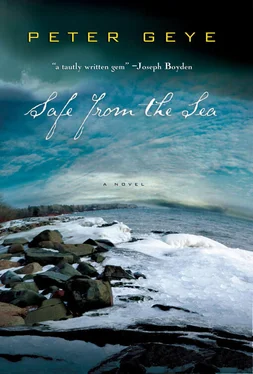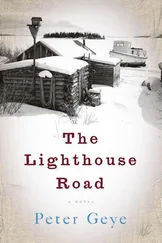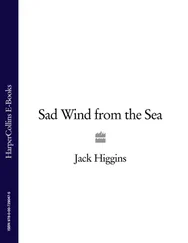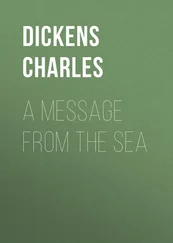“What for?”
“I want to show you something.”
He turned right. He passed two vacant slips not fifty feet from the road. The pier that jutted between them was wholly derelict. A little farther six pyramids of taconite five stories tall and black as obsidian rose against the harbor. Natalie asked about them.
“That’s what this town survives on. Or used to survive on. It’s taconite.”
“What your father spent all those years lugging around in his boat.”
Noah looked at her. “The same stuff.”
He turned onto Garfield and drove past a slip on his left with two tugs tied to cleats on the quay. He drove past two more slips. In the third a small freighter was docked under a loading complex. Men were about her deck.
“This is so interesting,” she said. “Look at those barges. What would they carry?”
“I don’t know. Not taconite. Limestone, maybe. Timber.”
They passed three more slips. They drove parallel to railroad tracks and abandoned-looking buildings, warehouses. At an unmarked dirt alleyway he turned left. They stopped at a chain-link fence. He turned off the car. They got out and stood at the fence. In the short distance they saw a minor civilization abandoned by time: train tracks sunk in the iodized soil, scrap yards tangled and twined with heaps of rusted steel, old cement silos unpainted in decades, a shack with windows of broken glass. Not far from the gate a pickup truck rounded a dirt bend. It stopped. A man opened the door and looked at them. He did not nod. He did not wave. Noah would not have needed to raise his voice to greet him, but neither did he do so. The man wore coveralls and a watchman’s cap. He stepped to the back of his truck and let the gate down. A silver-and-white Siberian husky jumped from the bed and ran to the gate to sniff Noah’s and Nat’s shoes. They were both startled, but the dog turned as fast as it had come and walked away from them, heeling at the watchman’s left. The dog had swollen teats they could see from behind, irrefutable evidence of a new shipyard progeny.
Noah said, “How would you like his job?”
Natalie was still watching man and dog walk away. “What is his job?”
“To guard this paradise, I guess.”
Together they surveyed the vista for a few minutes more. Finally Nat said, “I could eat a horse, and I have to pee.”
AFTER SCONES AND coffee — decaf for Nat — at a coffee shop in Canal Park, Noah gave her a tour of the city. He drove her past his high school and the house on High Street. He took her to Chester Park and showed her the ski jumps. He drove her around downtown and through the college campus. Finally they drove north, past the mansions along Lake Superior, and out of town.
“How long does it take to get to Misquah? I don’t remember.”
“A couple hours, maybe a little more,” Noah said. “We’re meeting Solveig and Tom at noon at the Landing. We have plenty of time.”
So they drove again the Superior coast. The trees were in that instant before budding, and beautiful. The lake, when they turned upon it, churned not at all. They talked all morning of possibilities. After their weekend at the cabin they were going back to Duluth to see if Nat could stand living there. Noah had planned it this way, hoping for a few days of kindly spring weather to trick her into loving his native city. He wanted to move back, wanted to start everything anew. Natalie, amazingly, had not rejected the idea outright, though she needed to be convinced, no doubt. Noah had a strategy. So far the weather was cooperating.
They stopped along the way at the Split Rock lighthouse, up among the trees, resting atop a cliff one hundred feet above the water. The image was fit for a tourist brochure. They stopped also at Tettegouche. They walked up the well-tended trails and marveled at the flowing water of the Illgen Falls. Noah told her about the bear and moose that drank from this river five miles upstream. She nodded, teased him about being a Boy Scout.
He slowed at the enormous loading facility at Taconite Harbor. Again great cones of taconite stood at the roadside. His father’s ships had loaded here, he told her, and at countless other such harbors. She listened intently.
In Misquah they met Solveig and Tom. They lunched in the little café. Noah told Nat how he’d stood outside talking to her on the pay phone. Solveig reminisced about the taffy their mother would buy for her every time they stopped there. Natalie described stopping here before heading up to Lake Forsone. After lunch they drove to the cabin.
There were still small mounds of snow beside the shed and at the top of the hill, where the plow had piled it all winter long. The eaves trough along the front of the house had come free of the roofline and hung to the ground. Icicles, Noah thought — it had been a snowy winter — and age.
They all stood in the yard, silent for a spell.
“This is how I left it,” Noah finally said.
“And you think you can fix this place up?” Solveig asked. She pointed to the gutter.
“That gutter’s nothing to fix,” Tom said.
“It’d be nothing for you to fix, honey.”
“Hey, I’ll manage,” Noah said. “Don’t worry.”
Nat took his arm, squeezed it.
“I’m going to turn the shed into a guesthouse. I already ordered the windows. The plumber just sent me an estimate for running a water line from the well to the house. By this time next year I’ll be running a four-star lodge here.”
“Just show me where the hot spot is on that lake,” Tom said.
The sound of birds erupted from a treetop. Ravens. They lifted into flight, arced once, and disappeared.
“Well?” Solveig said.
“No time like the present,” Noah said. He stepped to the trunk of his car. Neatly packed in a canvas book bag was his mother’s urn. He took the bag from the trunk and led the three of them down the path to the lake.
The last time Noah had trodden that path he’d done so with the weight of his deed as his only load. On that November afternoon he’d rowed back across the lake. The wind stiffened with each stroke of the oars so by the time he reached the dock there were whitecaps curling beyond the lee of the shore. It was as if the wind were rushing toward the deep water on the other side of the lake. As if to make it deeper still.
When he stepped onto the dock he accidentally shoved the boat. He made one grab for it but could only watch as it scudded away. He watched for a long time. Then he walked back up the hill.
Inside, he tried to conjure from the dusky heat of the stove some vision of his father’s ghost. All he found was sadness. But there resided in it a confused bliss for all that had come to pass. Their reconciliation. Late in the afternoon he trudged through the snow up to the county road. A plow had already been through and buried the truck. All he could see was the faded green roof. Expecting as much, he’d brought a shovel. In the last hour of daylight he dug it out. He drove into Misquah and called his sister.
In much the same way that she’d once orchestrated a response to their mother’s death, she began to instruct Noah. It was as if she’d thought of nothing else since she’d left those days ago. In the background Noah heard Tom’s voice. His usual gaiety was replaced with an earnestness Noah had never suspected. Tom reminded Solveig of details she’d forgotten in their scheme.
Noah was to report his father drowned. Man overboard trying to net the last fish of the year. A tragedy. Noah interrupted, described the rowboat adrift in the lake. Solveig related this to Tom, who took the phone from Solveig. “Then it’s a mystery, Noah. Call the police. Tell them your father is missing. Tell them you saw the boat floating empty in the middle of the lake. Tell them he’d gone fishing. It’s actually more plausible this way.”
Читать дальше












